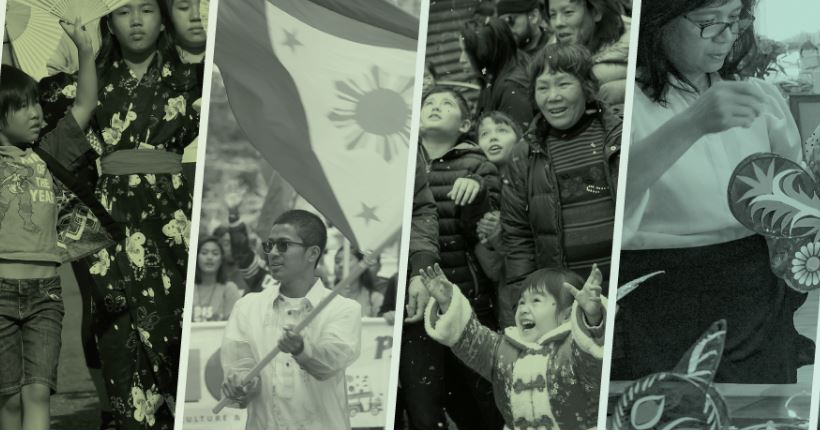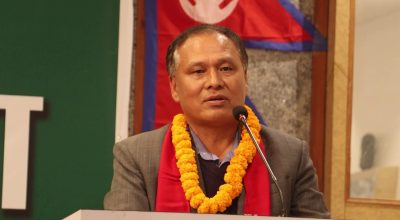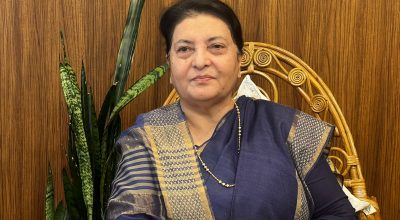
More than 24 million Asian Americans lived in the United States as of 2022, according to data from the U.S. Census Bureau. They accounted for 7% of the nation’s population that year and are the fastest-growing major racial or ethnic group in the country.
Asian Americans trace their roots to more than 20 countries in East and Southeast Asia, as well as the Indian subcontinent. But the large majority – 77% – have origins in just six countries: China, India, Japan, the Philippines, South Korea and Vietnam.
Immigrants account for a narrow majority of Asian Americans (54%), while a slightly smaller share are U.S. born (46%). Geographically, California is home to more than 7 million Asian Americans, far more than any other state. New York and Texas are each home to about 2 million Asians.
The median income among Asian American households was $100,000 in 2022. This means that half of households headed by an Asian person earned more than that and half earned less. Asian origin groups in the U.S. vary widely in their economic status. In fact, Asian Americans are among the most economically divided racial or ethnic groups today.
In 2022 and 2023, Pew Research Center surveyed more than 7,000 Asian adults in the U.S., asking them about their own identities, their views of the U.S. and their ancestral homelands, their political and religious affiliations, and more. Here’s a closer look at some of the key findings.
Identity
Asian Americans describe their identities in many ways. When asked how they most often describe themselves, some say they identify with their ethnic origins (such as “Chinese” or “Filipino”), some use a regional identity (such as “South Asian”), some use the pan-ethnic label “Asian,” and some identify as “American.” Still others combine their racial or ethnic identities with the word American – “Asian American,” for instance, or “Vietnamese American.”
Around a quarter of Asian adults in the U.S. (26%) say they most often use their ethnicity alone to describe themselves. A similar share (25%) use their ethnicity and the word “American” together. Another 16% most often describe themselves as “Asian American,” 12% describe themselves as “Asian” and 10% describe themselves as “American.” Relatively few (6%) use a regional Asian description, such as “South Asian.”
Knowledge of Asian American history
About a quarter of Asian American adults (24%) say they are extremely or very informed about the history of Asians in the U.S. Half say they are somewhat informed, and 24% say they are a little or not at all informed.
Among those who are at least a little informed about Asian American history, majorities say they have learned about U.S. Asian history informally – from the internet (82%), media (75%) or family and friends (63%). Fewer say they learned about it through a college or university (37%) or K-12 schools (33%).
Views of the U.S. and ancestral homelands
Roughly eight-in-ten Asian Americans (78%) have a very or somewhat favorable view of the U.S. That’s higher than the share who have a favorable opinion of any of the other places we asked about in our survey. The place with the second-highest favorable share is Japan (68%). On the other hand, only 20% of Asian American adults have a favorable opinion of China.
Among the six largest Asian origin groups in the U.S., most have a positive opinion of their own ancestral homeland, though Chinese Americans are a notable exception. Only 41% of Chinese adults in the U.S. have a favorable view of China.
While most people in the largest Asian origin groups see their ancestral homelands favorably, most say they would not move there. Among Asian Americans overall, around seven-in-ten (72%) say they would not do so. U.S.-born Asian Americans are more likely than immigrants to say they would not move to their ancestral homelands (84% vs. 68%).
Achieving the American dream
Most Asian Americans either say they’re on their way to achieving the American dream (45%) or say they’ve already achieved it (26%). Still, about a quarter (27%) say the American dream is out of reach for them – a share that is even higher among Asian Americans living in poverty (47%).
Politics
Asian Americans lean Democratic. Around six-in-ten Asian registered voters in the U.S. (62%) identify as Democrats or lean to the Democratic Party, while around a third (34%) affiliate with or lean to the Republican Party.
Most of the six largest Asian origin groups in the U.S. lean Democratic. Vietnamese Americans are the exception: 51% of Vietnamese registered voters are Republicans or lean to the GOP, while 42% identify with or lean to the Democratic Party.
In 2022, about 14 million Asian Americans were eligible to vote, accounting for 5% of the total U.S. eligible voter population. Pew Research Center projects that the number of Asian American eligible voters will rise to about 15 million this November, making them the fastest growing racial or ethnic group in the U.S. electorate since 2020. (Eligible voters include people who are at least 18 years old and U.S. citizens through birth or naturalization.)
Religion
As is the case among Americans as a whole, a rising share of Asian Americans are not affiliated with any religion, while a declining share identify as Christian.
Around a third of Asian adults in the U.S. (32%) are religiously unaffiliated, up from 26% in 2012. Meanwhile, 34% of Asian adults are Christian, down from 42% in 2012.
Despite this decline, Christians remain the largest faith group among Asian Americans. Smaller shares of Asian Americans are Buddhist (11%), Hindu (11%), Muslim (6%) or another faith (4%).
Religious affiliation differs considerably by origin group among Asian Americans. For example, more than half of Japanese Americans (47%) are religiously unaffiliated, while roughly three-quarters of Filipino Americans (74%) are Christian.
(Source: https://www.pewresearch.org/race-and-ethnicity/2024/08/06/asian-americans-a-survey-data-snapshot/)















